
The Open Door is a 1989 novel by Alan Sillitoe. It is the third and final part of the Seaton family trilogy which commenced with Saturday Night and Sunday Morning (1958) and then Key to the Door (1961). [1] [2] [3] [4] [5]

The Open Door is a 1989 novel by Alan Sillitoe. It is the third and final part of the Seaton family trilogy which commenced with Saturday Night and Sunday Morning (1958) and then Key to the Door (1961). [1] [2] [3] [4] [5]
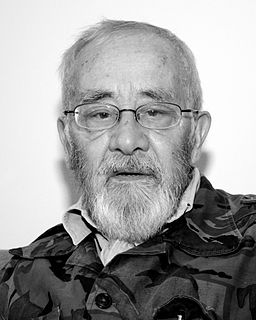
Alan Sillitoe FRSL was an English writer and one of the so-called "angry young men" of the 1950s. He disliked the label, as did most of the other writers to whom it was applied. He is best known for his debut novel Saturday Night and Sunday Morning and his early short story "The Loneliness of the Long Distance Runner", both of which were adapted into films.

Karel Reisz was a Czech-born British filmmaker, one of the pioneers of the new realist strain in British cinema during the 1950s and 1960s. Two of the best-known films he directed are Saturday Night and Sunday Morning (1960), a classic of kitchen sink realism, and the romantic period drama The French Lieutenant's Woman (1981).
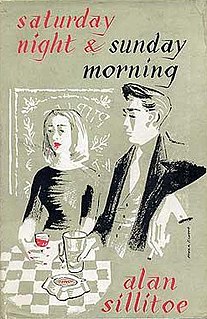
Saturday Night and Sunday Morning is the first novel by British author Alan Sillitoe and won the Author's Club First Novel Award.

Monica Elizabeth Jolley AO was an English-born Australian writer who settled in Western Australia in the late 1950s and forged an illustrious literary career there. She was 53 when her first book was published, and she went on to publish fifteen novels, four short story collections and three non-fiction books, publishing well into her 70s and achieving significant critical acclaim. She was also a pioneer of creative writing teaching in Australia, counting many well-known writers such as Tim Winton among her students at Curtin University.
Sid Chaplin was an English writer whose works are mostly set in the north-east of England, in the 1940s and 1950s.
John King is an English writer best known for his novels which, for the most part, deal in the more rebellious elements driving the country's culture. His stories carry strong social and political undercurrents, and his work has been widely translated abroad. He has written articles and reviews for alternative and mainstream publications, edits the fiction journal Verbal, and is the co-owner of the London Books publishing house.
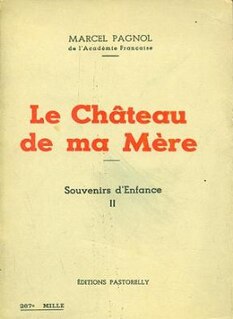
My Mother's Castle is a 1957 autobiographical novel by Marcel Pagnol, the second in the four-volume series Souvenirs d'enfance and the sequel to My Father's Glory. It was the subject of a film made by Yves Robert in 1990 which is faithful to the original plot but which includes material from the third book in the four-novel series, Le Temps des Secrets.

Mike Wilks is an artist, illustrator and author of nine books including the global bestseller The Ultimate Alphabet, which was a New York Times bestseller and Sunday Times bestseller for 57 weeks with over 750 000 copies sold worldwide.
Rachel Ames, née Stainer was a British novelist and journalist who wrote under the pseudonym Sarah Gainham. She is perhaps best known for her 1967 novel Night Falls on the City, the first of a trilogy about life in Vienna under Nazi rule.

Saturday Night and Sunday Morning is a 1960 British kitchen sink drama film directed by Karel Reisz and produced by Tony Richardson. It is an adaptation of the 1958 novel of the same name by Alan Sillitoe, who also wrote the screenplay adaptation. The film is about a young machinist, Arthur, who spends his weekends drinking and partying, all the while having an affair with a married woman.
The Authors' Club Best First Novel Award is awarded by the Authors' Club to the most promising first novel of the year, written by a British author and published in the UK during the calendar year preceding the year in which the award is presented.

The Loneliness of the Long Distance Runner is a 1962 British coming-of-age film. The screenplay was written by Alan Sillitoe from his 1959 short story of the same title. The film was directed by Tony Richardson, one of the new young directors emerging from the English Stage Company at the Royal Court.

Five Golden Dragons is a 1967 international co-production comedy action film set in Hong Kong and photographed in Techniscope on location in September 1966 at the Tiger Balm Pagoda and Shaw Brothers studios. It was directed by Jeremy Summers and starred Bob Cummings in his final theatrical feature film, Margaret Lee who sings two songs in the film, Rupert Davies and a cast of "guest stars".

Seaton railway station served the village of Seaton, near Workington in Cumberland, England.
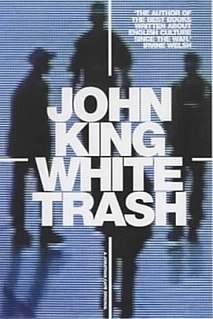
White Trash is the fifth novel by English author John King, first published in 2001 by Jonathan Cape. The paperback edition of the book, released by Vintage, carries the following quote by Alan Sillitoe, author of Saturday Night And Sunday Morning, on its cover: "Complete and unique, all stitched up and marvellous, the two sides of the equation brought together, realistic yet philosophical." The quote also appears on the US edition of the novel (2016), which includes an introduction by the author—"From Cradle to Grave".

Savoy Cinema is on Derby Road in Nottingham, England. It is the only surviving pre-Second World War cinema in Nottingham.
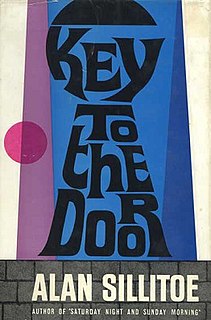
Key to the Door is a novel by English author Alan Sillitoe, first published in 1961.
Philip Kenneth Callow was an English novelist known for his autobiographical portrayals of working-class life. During a long career as a writer, he published 16 novels, poetry, and several biographies of artists and authors, including Vincent van Gogh, D. H. Lawrence, Anton Chekhov, Walt Whitman, and Paul Cézanne.
Saturday Night and Sunday Morning is a 1958 novel by Alan Sillitoe.